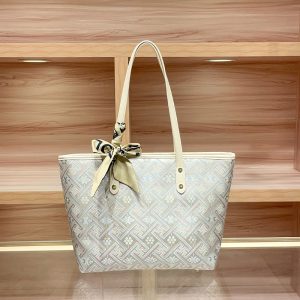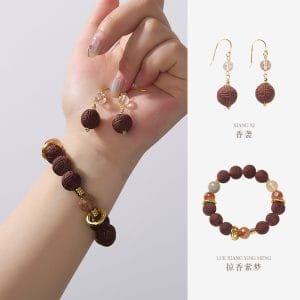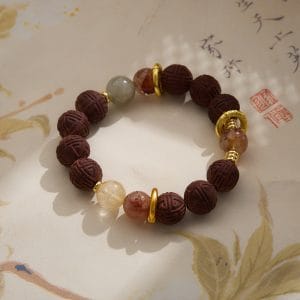Understanding Tea‘s Delicate NatureTea, in all its glorious forms, is a living, breathing entity that demands respect and attention. Whether you’re a casual drinker or a seasoned connoisseur, understanding how to care for your tea is the first step toward unlocking its full potential. Each leaf tells a story—of its origin, its processing, and the hands that nurtured it—and improper storage or handling can mute that narrative. Tea is sensitive to light, air, moisture, and strong odors, all of which can degrade its quality over time. Think of it as preserving a fine wine or a cherished book; the right environment ensures it ages gracefully rather than fading into mediocrity. My own journey with tea began with a forgotten tin of oolong left on a sunny windowsill, which turned a once vibrant brew into a flat, lackluster shadow of itself. That lesson taught me that tea care isn’t just about prolonging shelf life—it’s about honoring the craft and tradition behind every cup.
Practical Steps for PreservationWhen it comes to storing tea, consistency is key. Industry reports suggest that improper storage can lead to quality degradation in around 6%–12% of teas within just a few months, especially if exposed to fluctuating conditions. To avoid this, invest in airtight, opaque containers made of tin, ceramic, or dark glass. These materials shield your leaves from light and air, the two biggest culprits behind staleness. Keep your containers in a cool, dry place away from spices, coffee, or other strong-smelling items, as tea easily absorbs odors. For those with larger collections, labeling tins with purchase dates helps track freshness—most teas are best consumed within six months to a year, though some aged varieties like pu-erh improve with time. A small hygrometer can also be handy for monitoring humidity levels, aiming for below 60% to prevent mold. Remember, tea is forgiving but not impervious; a little diligence goes a long way in preserving those nuanced flavors you love.
One of my favorite good finds is the Japanese-style tetsubin tea canisters—not only are they beautiful and functional, but their enamel-lined interiors provide an ideal barrier against moisture and light. I keep mine in a dedicated cupboard away from the stove and sink, and the difference in flavor compared to my earlier haphazard methods is night and day. For those on a budget, simple mason jars stored in a dark pantry work wonders too; just ensure they’re sealed tightly. Rotate your stock regularly, using older teas first, and avoid refrigerating or freezing most varieties, as condensation can introduce moisture and ruin the leaves. Herbal blends and flavored teas may require extra attention, as their added ingredients can be more prone to fading. Ultimately, treating your tea with care isn’t just practical—it’s a ritual that deepens your appreciation with every sip.
Beyond storage, how you handle tea daily also impacts its longevity. Always use dry utensils to scoop leaves, as introducing moisture invites spoilage. If you blend your own teas, do so in small batches to maintain freshness, and keep notes on what works—and what doesn’t. I once experimented with adding dried citrus peels to a green tea blend, only to find it turned bitter within weeks due to the oils; now, I store such additions separately until brewing. For loose-leaf enthusiasts, investing in quality infusers or pots that allow leaves to expand fully can also enhance the experience, as cramped spaces can crush leaves and accelerate quality loss. Remember, tea care is a blend of science and intuition; listen to your senses—if a tea smells off or tastes flat, it might be time to refresh your stash.
Water quality plays a surprisingly big role in tea maintenance, too. Using filtered or spring water can prevent mineral buildup in your teaware and ensure pure flavors, as tap water with high chlorine or hardness can leave residues and alter taste. After brewing, always rinse pots and cups thoroughly without soap if possible, as lingering scents can transfer to future batches. For stained ceramic or clay pots, a gentle scrub with baking soda works wonders without harsh chemicals. My grandmother swore by sun-drying her teapots occasionally to ‘rejuvenate’ them—a tradition I still follow, and it does seem to keep them fresh and odor-free. These small habits not only extend the life of your tea but also your tools, making each session more enjoyable.
Sharing tea with others is where care truly shines. I recall hosting a friend who adored smoky lapsang souchong; I stored it separately in its own container to prevent its bold aroma from permeating my delicate greens and whites. That attention to detail made for a memorable tasting experience, highlighting how thoughtful maintenance enhances connection. Encourage guests to appreciate the nuances you’ve preserved—maybe even start a tea journal to track preferences and storage successes. Tea is meant to be enjoyed, not hoarded, so don’t hesitate to brew and share your best leaves; after all, the joy of tea lies in its ability to bring people together over a perfectly steeped cup.
In the end, caring for tea is a practice in mindfulness. It invites you to slow down, observe, and engage with something simple yet profound. Whether you’re savoring a rare matcha or a comforting chamomile blend, the effort you put into maintenance pays dividends in flavor and satisfaction. Start small—maybe with one properly stored tin—and build from there. Your future self (and your tea) will thank you for it.
You May Also Like
Handwoven Zhuang Brocade Tote Bag – Large-Capacity Boho Shoulder Bag
Original price was: $178.00.$154.00Current price is: $154.00. Add to cartThe Palace Museum Paper-Cut Light Art Fridge Magnets: Chinese Cultural Style Creative Gift Series
Price range: $27.00 through $36.00 Select options This product has multiple variants. The options may be chosen on the product pageAncient Craft Herbal Scented Bead Bracelet with Gold Rutile Quartz, Paired with Sterling Silver (925) Hook Earrings
Original price was: $322.00.$198.00Current price is: $198.00. Add to cartGuangxi Zhuang Brocade Handmade Tote – Ethnic Boho Large-Capacity Shoulder Bag
Original price was: $172.00.$150.00Current price is: $150.00. Add to cart








